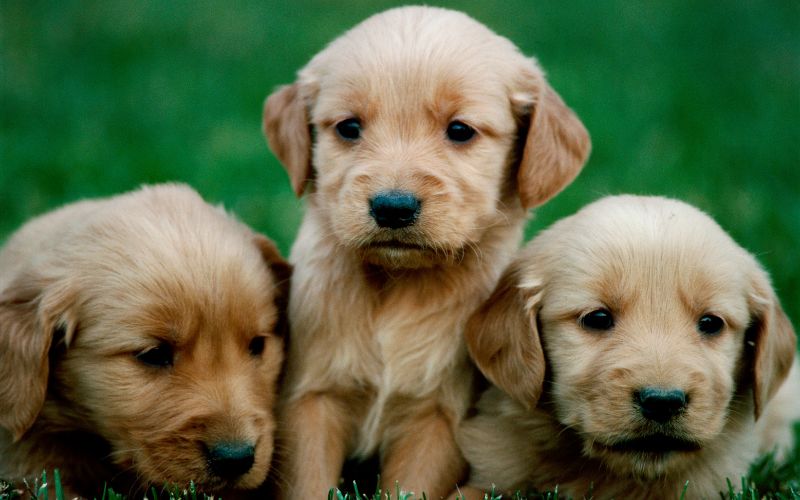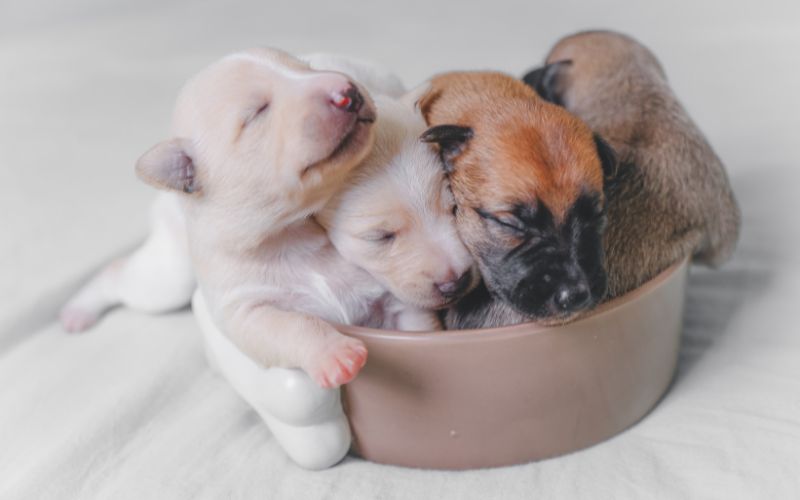When you’re looking for a new puppy, it’s important to do your research and ask the right questions of the breeder.
By asking the right questions, you can get a better sense of whether the breeder is responsible and has the puppy’s best interests at heart.
As part of your search for a puppy you should always look to find a responsible breeder who has the welfare of dogs as the prime reason for breeding, rather than lining their pockets with your cash. There are several questions that you can ask, which, when combined with your impressions of them, will help you to make an informed decision.
Have the puppies’ parents been health screened?
You should always ask to see the health certificates for the puppies‘ parents, as well as any grandparents or other relatives.
This will help to give you an indication of the general health of the bloodline and whether there are any conditions that are known to be common in the breed.
A good breeder will provide a puppy contract which will guarantee the health of your puppy.
Can you put me in touch with someone who already has one of your puppies?
A good breeder will have no problem putting you in touch with one of their previous puppy buyers, so that you can get first-hand experience of what it’s like to own one of their dogs.
This also gives you the opportunity to ask about the temperament of the dog and whether there have been any health problems.

Are you registered with the Kennel Club (UK) or AKC (USA) or a member of a breed club?
Many responsible breeders will be members of a breed club and/or registered with the Kennel Club (UK) or AKC (USA) which requires them to adhere to a Code of Ethics.
This code includes clauses such as not breeding from dogs with known health problems and only selling puppies to homes where they will get the care and attention they need.
Note that not all breeders will be registered and, in some places, the option for registration may not exist.
This does not necessarily mean that the breeder is not responsible and, as with the rest of the questions, you should use the response to this as one part of your decision making process.
How long have you been breeding ?
This question will help you to gauge the breeder’s level of experience.
A breeder who has been breeding for many years is likely to have a better understanding of the breed and the health problems that can occur.
However, it’s also worth considering that a new breeder may have done their homework and be just as good as someone who has been breeding for years.
How many litters has the mother had?
The answer to this question will give you some indication of whether the breeder is prioritising quantity over quality.
A good breeder will only breed from a bitch (female dog) a few times during her lifetime and she will have time to recover litters.
If the breeder has bred multiple litters from the same bitch, this may be an indication that they are not prioritising the welfare of the dogs.
What happens to the female(s) once she/they have finished breeding?
The answer to this will tell you a lot about the breeder.
An individual that cares for their dogs will keep the bitch as part of their family and not get rid of her once she’s done her job.
On the other hand, a breeder that is only interested in making money may sell her on or even put her down.
Do you breed any other types of dog?
This question will help you to understand whether the breeder is a ‘professional’ or someone who breeds dogs as a hobby.
There is nothing wrong with either type of person, but it’s important that you are aware of this before you buy a puppy from them.
A professional breeder is likely to have more than one type of dog and they may even have kennels where the dogs are kept.
A hobby breeder is likely to only breed one or two types of dog and the dogs will usually live in the home as part of the family.
What is so special about this litter?
The answer to this question will help you understand the breeder’s motivation for breeding the litter.
A good breeder will only breed a litter when they believe that the puppies will be an improvement on the parents in terms of health, temperament or conformation (how well the dog conforms to the breed standard).
If the breeder cannot answer this question, or if they say that there is nothing special about the litter, it may be an indication that they are only breeding for money.

What do you feed your adult dogs and puppies?
The breeder’s answer to this question will give you some insight into their level of knowledge about dog nutrition and their commitment to the health and wellbeing of their dogs.
Good quality food is imperative, particularly for puppies that grow at an incredibly rapid rate.
A good breeder will be able to tell you what they feed their adult dogs and puppies and why they have chosen that particular food.
They should also be able to give you advice on how to transition your puppy onto solid food.
If the breeder is unable to answer this question, or if they give you conflicting information, it may be an indication that they are not as knowledgeable about dog care as you would like them to be.
What special care do you recommend?
The answer to this question will give you some idea of the level of aftercare and support that the breeder is willing to provide.
A good breeder will be able to give you advice on a wide range of topics, including house training, obedience training, socialisation, diet and exercise.
They should also be able to provide you with a list of recommended veterinarians, dog trainers, resources such as books, clubs and websites where you can learn about the breed, and other professionals that can help you to care for your new puppy.
What is the average lifespan of your dogs?
The answer to this question will give you some indication of the breeder’s commitment to breeding healthy dogs.
A good breeder will be able to tell you the average lifespan of the dogs they have bred and the health problems that are common in the breed.
They should also be able to tell you about any health problems that have affected the parents of the litter you are interested in.
How socialised and housetrained is the puppy?
The answer to this question will give you some idea of the level of care and attention that the puppy has received.
A good breeder will have spent time socialising and housetraining their puppies so that they are well-adjusted and confident when they go to their new homes.
If the breeder is unable to answer this question, or if the puppy does not seem to be well-socialised or housetrained, it may be an indication that they have not been given the care and attention they need.
What healthcare have the pups had so far?
A good breeder will have taken their puppies to the vet for a health check, vaccinations and worming.
They should also be able to provide you with a copy of the puppy’s medical records.
The breeder will be able to tell you when the puppies are next due for worming and for their next dose of vaccinations.
Has the puppy been microchipped?
A good breeder will have their puppies microchipped before they go to their new homes.
They should be able to provide you with the puppy’s microchip number and registration details.
Do you have any questions for me?
The breeder should be keen to know that the puppy will be going to a good home and that you are prepared to care for them properly.
They may ask you questions about your lifestyle, your experience with dogs, your other pets, your home and whether or not you have a secure garden.
They should also be interested in your plans for the puppy’s education and socialisation.
If the breeder does not seem interested in finding out about you and your plans for the puppy, it may be an indication that they are not as concerned about the welfare of their dogs as you would like them to be.
Final Words
You should never feel obliged to get a puppy from ‘any old dog breeder’.
Just as is the case with everything else in life, there are good and there are bad breeders.
By asking the breeder these questions you will gain some insight into their level of knowledge about dog care and their commitment to the health and wellbeing of their dogs.
It is important to remember that a good breeder will be happy to answer any questions you have, and will be keen to discuss their dogs with you at length.
If you are not satisfied with the answers you receive, or if the breeder does not seem willing to answer your questions, it may be best to look elsewhere for your new puppy.










